
El Pópulo: The Heartbeat of Historic Cádiz
El Pópulo is the oldest neighborhood in Cádiz, steeped in history and brimming with charm. Walking through its narrow, winding streets feels like stepping back in time, with every corner telling a story of the city’s rich past. The area is home to some of Cádiz’s most important landmarks, including the grand Cádiz Cathedral and the Roman Theatre, which dates back to the 1st century BC. El Pópulo is also known for its vibrant atmosphere, with a mix of traditional tapas bars, artisan shops, and lively plazas. The Plaza de San Juan de Dios is a focal point, offering a picturesque spot to relax and soak in the local culture. The neighborhood’s close proximity to the waterfront means that beautiful sea views are never far away, adding to its allure. Visitors can explore the Arco de la Rosa, one of the ancient city gates, and the charming Casa del Almirante, a stunning example of 17th-century architecture. The neighborhood is also famed for its festivals, particularly during the Carnaval de Cádiz, when the streets come alive with music, color, and joy. El Pópulo offers a perfect blend of history, culture, and seaside beauty, making it an unmissable destination in Cádiz.
Local tips in El Pópulo
- Wear comfortable shoes to navigate the narrow, cobblestone streets.
- Visit early in the morning or late in the evening to avoid the midday heat.
- Try the local tapas at Plaza de San Juan de Dios for an authentic culinary experience.
- Don't miss the Carnaval de Cádiz if you visit in late February or early March.
- Check out the Roman Theatre for a glimpse into ancient history.
El Pópulo: The Heartbeat of Historic Cádiz
El Pópulo is the oldest neighborhood in Cádiz, steeped in history and brimming with charm. Walking through its narrow, winding streets feels like stepping back in time, with every corner telling a story of the city’s rich past. The area is home to some of Cádiz’s most important landmarks, including the grand Cádiz Cathedral and the Roman Theatre, which dates back to the 1st century BC. El Pópulo is also known for its vibrant atmosphere, with a mix of traditional tapas bars, artisan shops, and lively plazas. The Plaza de San Juan de Dios is a focal point, offering a picturesque spot to relax and soak in the local culture. The neighborhood’s close proximity to the waterfront means that beautiful sea views are never far away, adding to its allure. Visitors can explore the Arco de la Rosa, one of the ancient city gates, and the charming Casa del Almirante, a stunning example of 17th-century architecture. The neighborhood is also famed for its festivals, particularly during the Carnaval de Cádiz, when the streets come alive with music, color, and joy. El Pópulo offers a perfect blend of history, culture, and seaside beauty, making it an unmissable destination in Cádiz.
Iconic landmarks you can’t miss
Torre Tavira
Explore the historic Torre Tavira, offering stunning views of Cádiz and a glimpse into the city's rich maritime history.
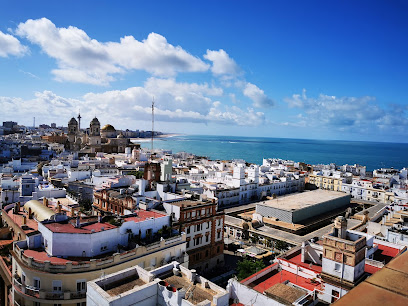
The 1812 Constitution Monument
Explore the historical 1812 Constitution Monument in Cádiz, a stunning tribute to democracy set amidst beautiful gardens and rich cultural heritage.
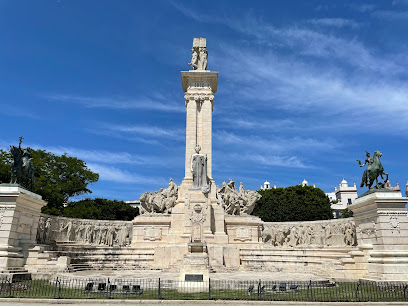
Teatro Romano de Cádiz
Explore the ancient wonders of Teatro Romano de Cádiz, a historical landmark that showcases the city's rich Roman heritage and vibrant cultural scene.
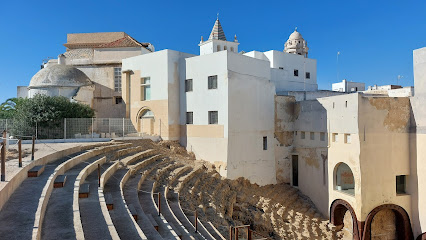
Yacimiento Arqueológico Gadir
Explore the rich history of the ancient Phoenician city of Gadir at the Yacimiento Arqueológico Gadir in Cádiz, where archaeology meets coastal charm.
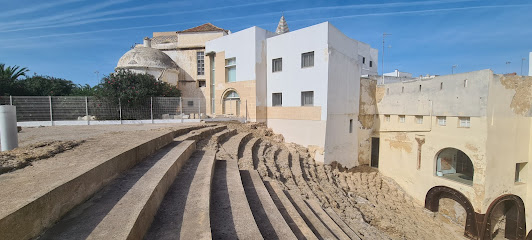
Arco Del Populo
Explore the historic Arco Del Pópulo in Cádiz, a stunning gateway to the city's rich cultural heritage and vibrant streets.
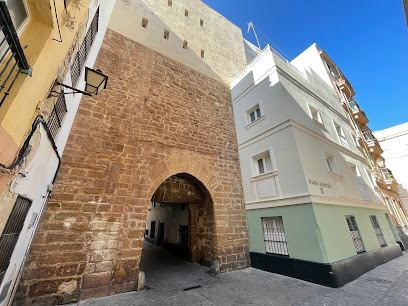
Arco de los Blanco
Explore the Arco de los Blanco, a stunning historical landmark in Cádiz, showcasing rich architecture and vibrant local culture.
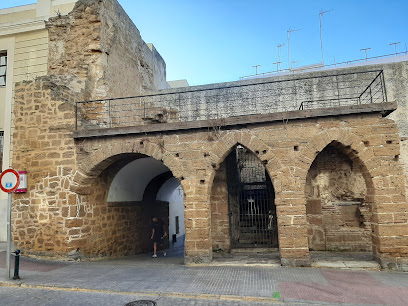
Statue of Segismundo Moret
Explore the Statue of Segismundo Moret in Cádiz, a captivating sculpture that reflects the city's rich history and vibrant culture.
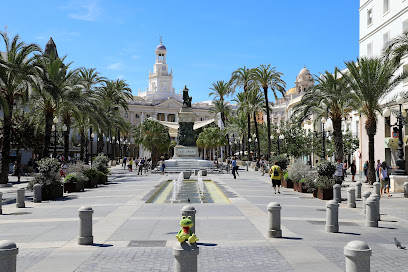
Arco de la Rosa
Explore the majestic Arco de la Rosa, a historical landmark in Cádiz that embodies the rich cultural heritage and architectural beauty of Spain.
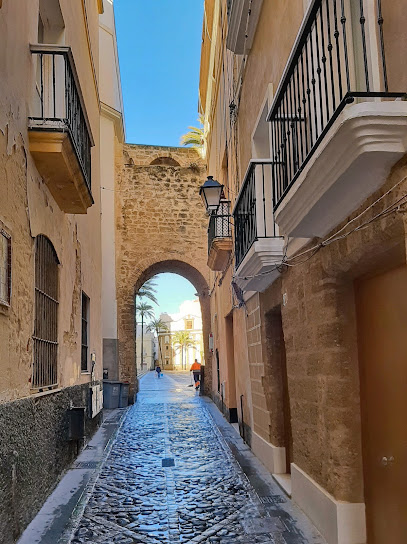
Casa Palacio del Almirante
Explore the historic allure of Casa Palacio del Almirante in Cádiz, a stunning blend of architecture and culture waiting to be discovered by tourists.
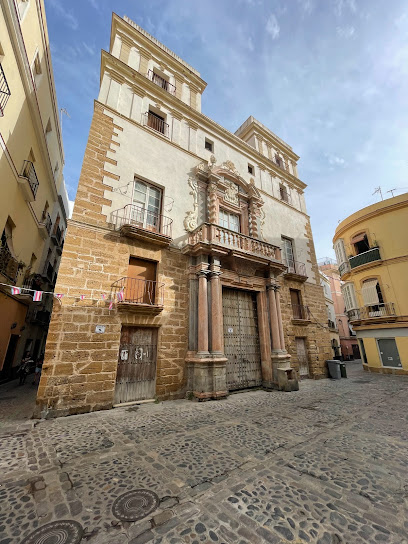
Callejón del Duende
Explore Callejón del Duende, a historical landmark in Cádiz, where vibrant culture meets rich architectural heritage in a picturesque setting.
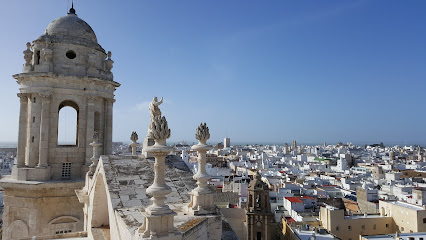
Torre de Poniente
Experience stunning panoramic views and rich history at Torre de Poniente, a must-visit scenic spot in the heart of Cádiz, Spain.
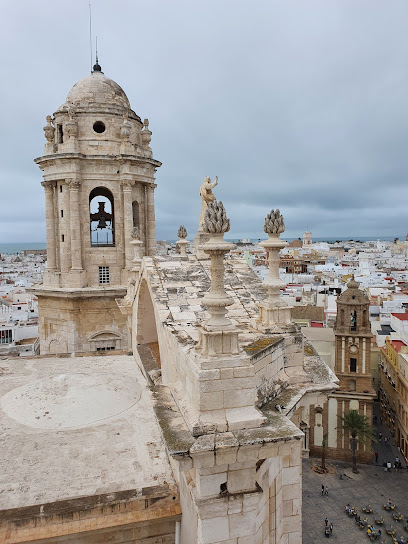
Unmissable attractions to see
Catedral de la Santa Cruz de Cádiz
Explore the Cathedral of Cádiz, a stunning blend of Baroque and Neoclassical architecture, offering breathtaking views and rich cultural heritage.

The flower market square
Discover the charm and vibrant culture of Cádiz at The Flower Market Square, a must-visit historical landmark filled with colorful flowers and local delights.
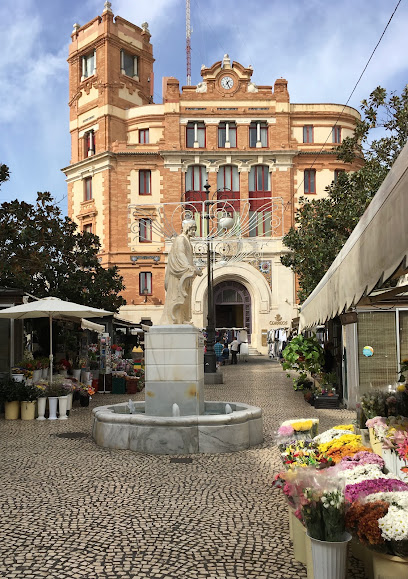
Torre Tavira
Experience the breathtaking views and rich history of Torre Tavira, Cádiz's iconic watchtower and a captivating tourist attraction.
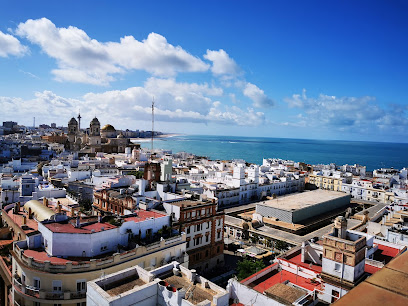
Cadiz Museum
Explore the Cádiz Museum: A vibrant showcase of archaeology, art, and ethnography that reveals the rich history and culture of Cádiz.
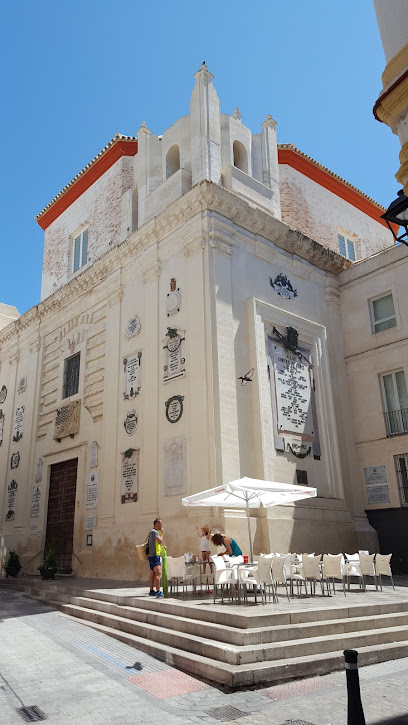
Murallas De San Carlos
Discover the Murallas De San Carlos, a historic fortress in Cádiz offering breathtaking views and rich maritime history for an unforgettable visit.
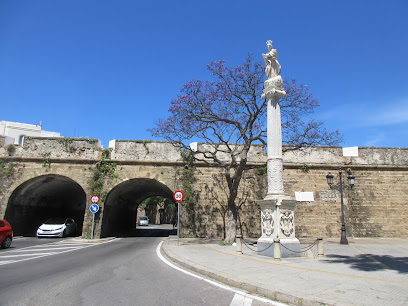
Casa Palacio del Almirante
Discover the architectural beauty and rich history of Casa Palacio del Almirante, a must-visit cultural landmark in Cádiz, Spain.
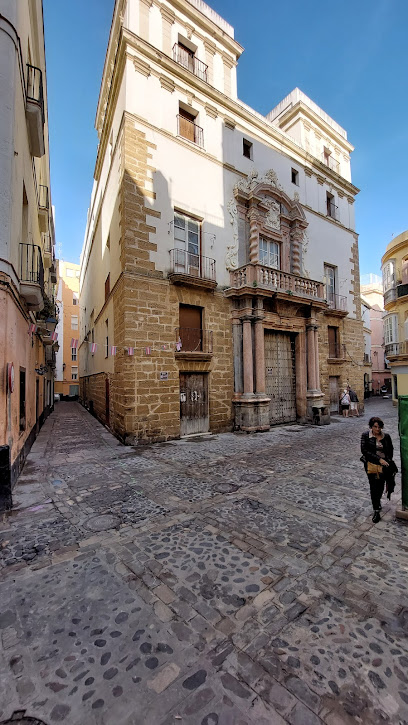
Casco Antiguo de Cádiz
Explore the enchanting streets of Casco Antiguo de Cádiz, where history meets vibrant culture in Spain's oldest city.
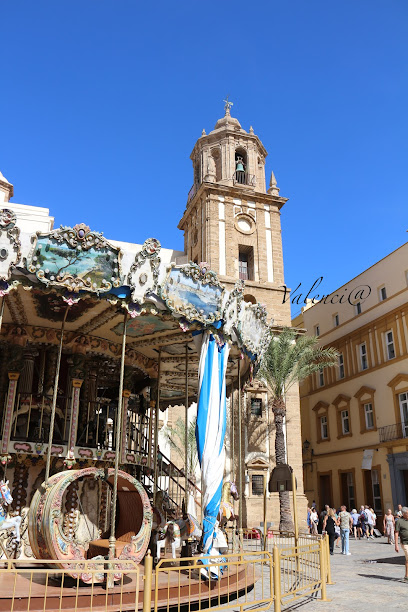
Cádiz Centro Comercial Abierto
Explore Cádiz Centro Comercial Abierto for a unique shopping experience infused with local culture and vibrant atmosphere.
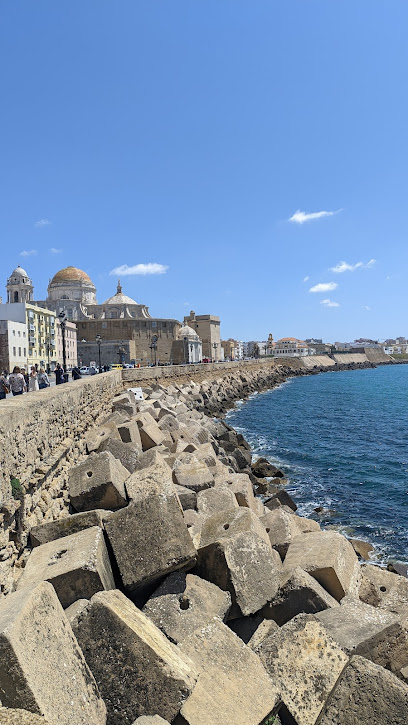
Essential places to dine
La Candela
Discover authentic Spanish tapas and Mediterranean delights at La Candela in Cádiz, where every dish celebrates local flavors and culinary traditions.
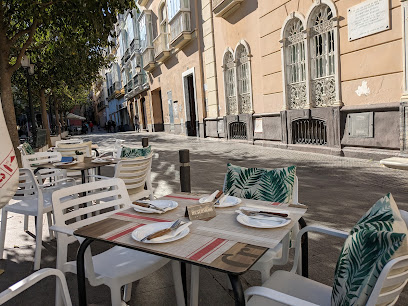
Restaurante El Aljibe
Experience authentic Mediterranean cuisine at Restaurante El Aljibe in Cádiz - where every dish tells a story of tradition and flavor.
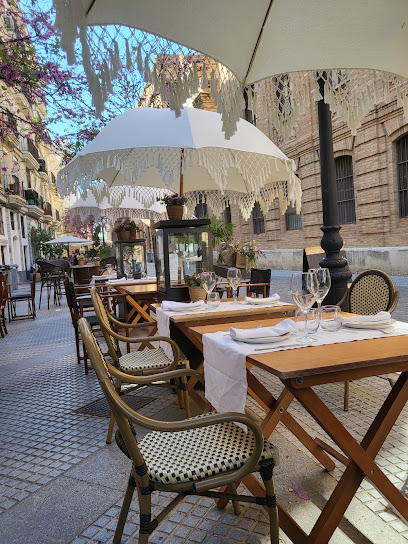
Restaurante Café Royalty - Restaurantes en Cádiz
Experience the best of Mediterranean and Spanish cuisine at Restaurante Café Royalty in Cádiz—where every dish tells a story.
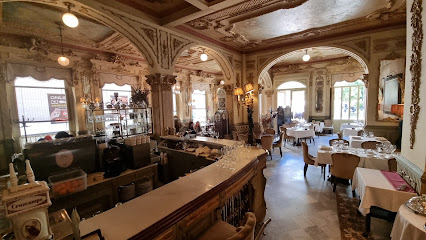
La Mafia se sienta a la mesa
Discover authentic Italian flavors at La Mafia se sienta a la mesa in Cádiz – where delicious food meets vibrant ambiance.
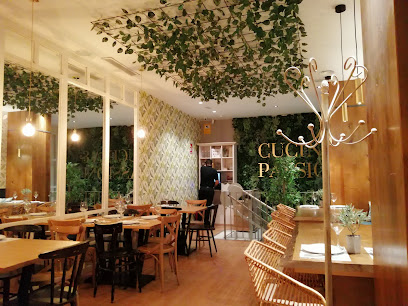
Puerta del Eden Restaurant
Discover the essence of Mediterranean cuisine at Puerta del Eden Restaurant in Cádiz – where local flavors meet exceptional dining experiences.
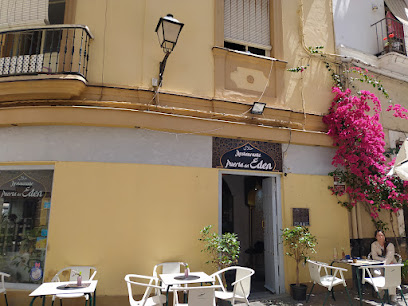
Alamar
Discover the authentic taste of Mediterranean cuisine at Alamar in Cádiz - a seafood lover's paradise offering exquisite dishes in a vibrant atmosphere.
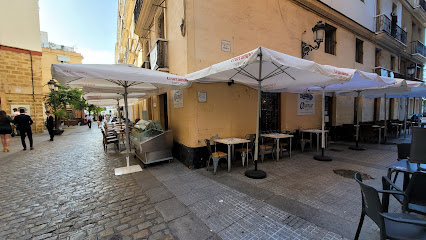
Casa Angelita
Experience authentic Spanish cuisine at Casa Angelita in Cádiz - where tradition meets modern culinary artistry.
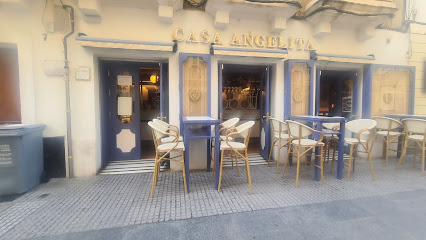
Restaurante Garum
Experience authentic Andalusian cuisine at Restaurante Garum - a charming tapas bar in the heart of Cádiz known for its vibrant atmosphere.
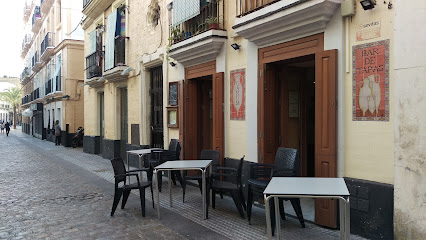
Restaurante Salicornia Cadiz
Discover exquisite Andalusian cuisine at Restaurante Salicornia in Cádiz, where fresh ingredients meet stunning coastal views.
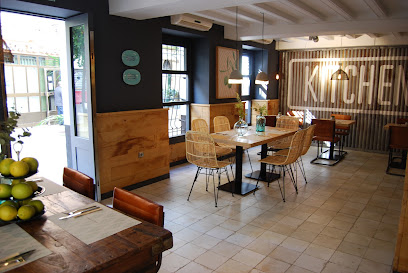
Séptima Malta
Discover the authentic flavors of Spain at Séptima Malta, Cádiz's top-rated tapas bar where every dish tells a story.
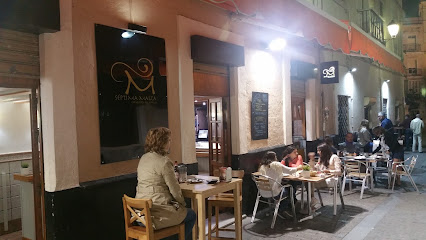
Markets, malls and hidden boutiques
Museum-store of Cadi-Cadi
Discover the vibrant culture of Cádiz at the Museum-store of Cadi-Cadi, where unique handicrafts and local art await every visitor.
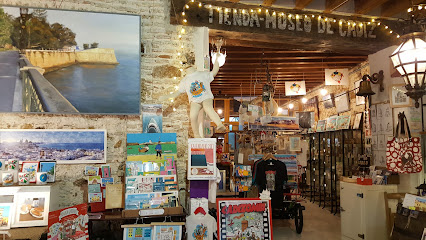
La Tienda de La Vecina
Explore La Tienda de La Vecina in Cádiz – a treasure trove of unique souvenirs, beachwear, and handcrafted artisanal goods that celebrate local culture.
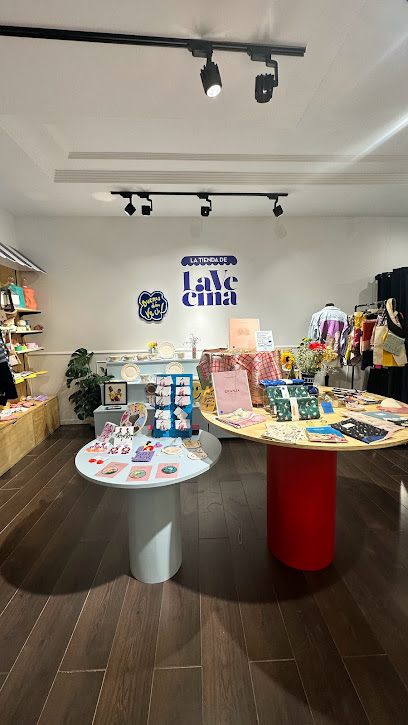
King Vintage
Explore King Vintage in Cádiz for a unique selection of curated vintage clothing and accessories that embody timeless style and individuality.
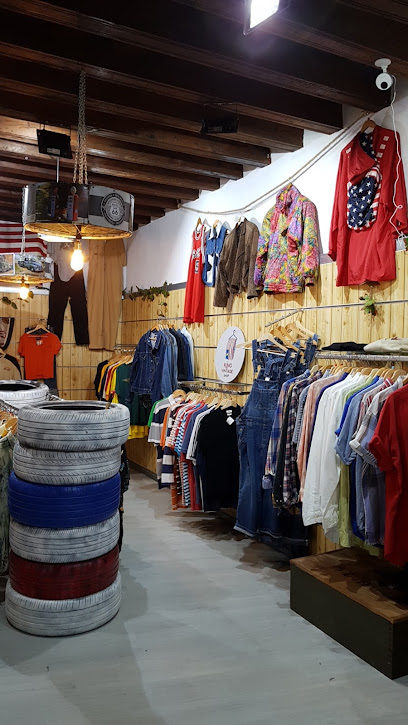
La Capsula
Explore La Capsula, the ultimate clothing destination in Cádiz, offering a unique blend of local fashion and quality service for every traveler.
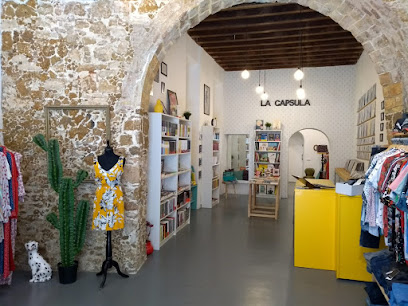
Spagnolo
Discover contemporary fashion in Cádiz at Spagnolo, where style meets local culture in a vibrant shopping experience.
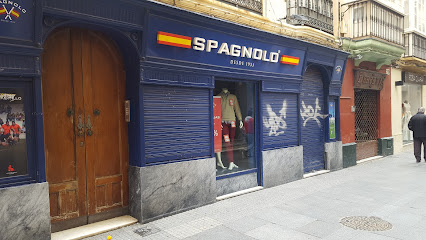
CASA LAMAR
Explore Casa Lamar in Cádiz for unique art, fashion, and handcrafted goods that capture the essence of local culture and creativity.
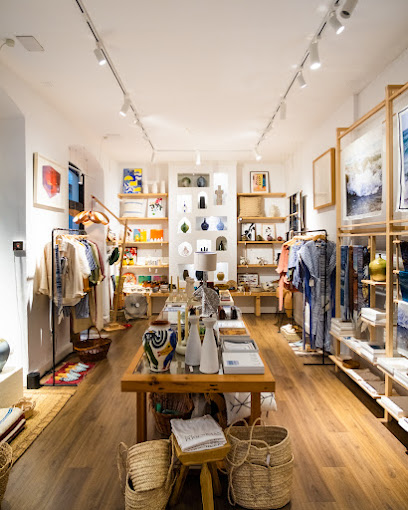
Kiosko la Catedral
Explore Kiosko la Catedral in Cádiz for authentic local gifts and souvenirs that capture the spirit of this beautiful coastal city.
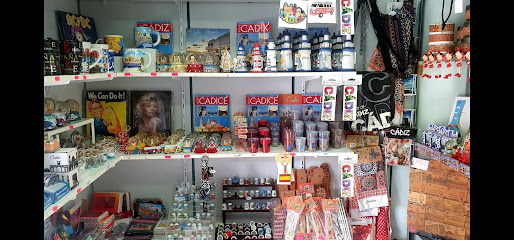
TripMilenaria Museum Store
Explore local craftsmanship at TripMilenaria Museum Store, Cádiz's prime destination for unique souvenirs and cultural treasures.
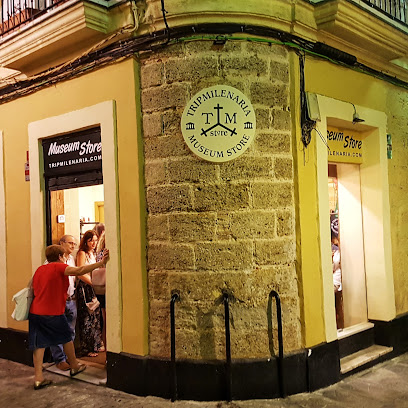
El Rincón del Cádiz Regalos
Discover a unique blend of local crafts and souvenirs at El Rincón del Cádiz Regalos, the perfect spot to find your treasure in Cádiz.
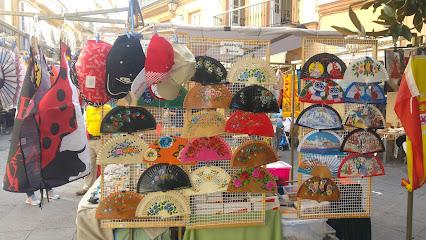
Magda's Home
Explore the unique handicrafts and stylish women's clothing at Magda's Home in Cádiz, a must-visit for authentic souvenirs and local culture.
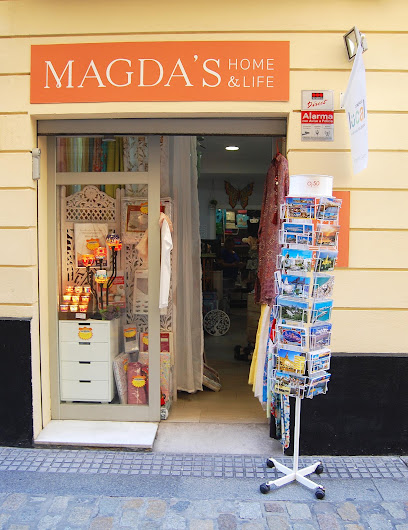
Essential bars & hidden hideouts
Bar El Laurel
Experience authentic Spanish tapas and a vibrant atmosphere at Bar El Laurel, a must-visit culinary destination in Cádiz.
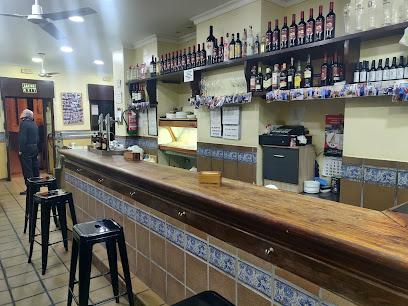
Muelle Uno Cafe & Bar
Experience the vibrant culture of Cádiz at Muelle Uno Cafe & Bar, where delicious food and stunning waterfront views await you.
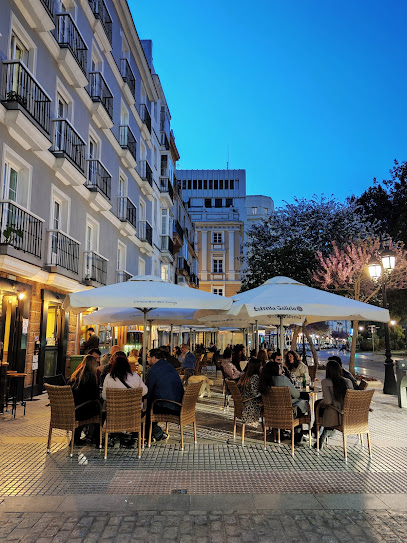
Bar El Teniente Seblon
Experience the vibrant tapas culture at Bar El Teniente Seblon in Cádiz, where delicious flavors and a lively atmosphere await every visitor.
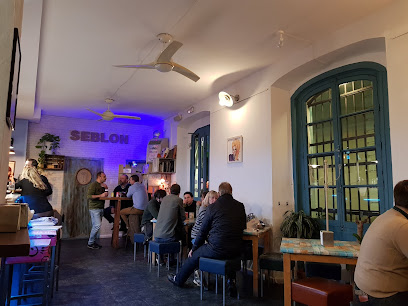
Cafe Bar El Malagueño
Discover the charm of Cafe Bar El Malagueño in Cádiz, where authentic tapas and a lively atmosphere create unforgettable moments.
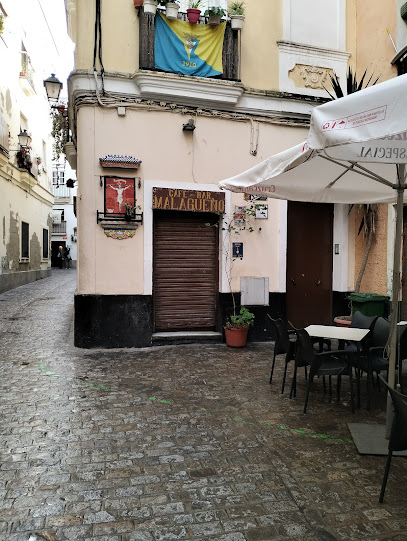
Savage Bar
Discover the lively atmosphere of Savage Bar in Cádiz, where enchanting piano tunes and affordable drinks create unforgettable nights.
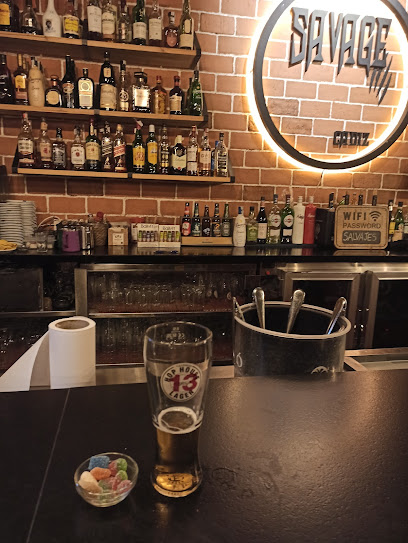
Bar Pablito
Experience the vibrant atmosphere and authentic flavors of Cádiz at Bar Pablito, a must-visit local bar for every traveler.
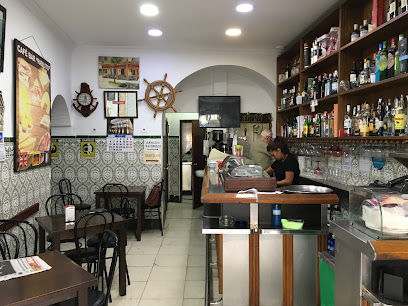
Aleph Cocktail Club
Experience the vibrant nightlife of Cádiz at Aleph Cocktail Club, where expertly crafted cocktails and a warm atmosphere await.
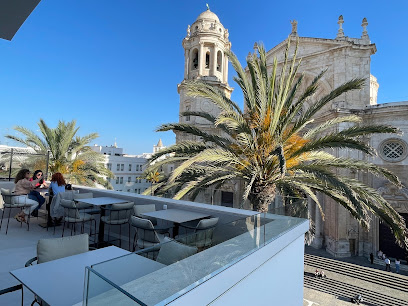
El Rincon de los Canallas
Discover the vibrant atmosphere and authentic flavors at El Rincon de los Canallas, a beloved bar in Cádiz perfect for socializing and savoring local cuisine.
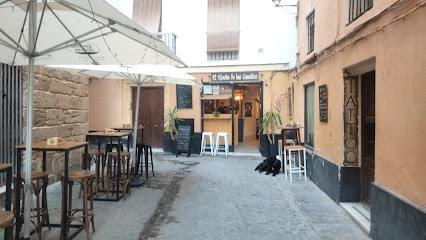
Coctelería Merykele
Experience the vibrant nightlife of Cádiz at Coctelería Merykele, where expertly crafted cocktails meet an inviting atmosphere.
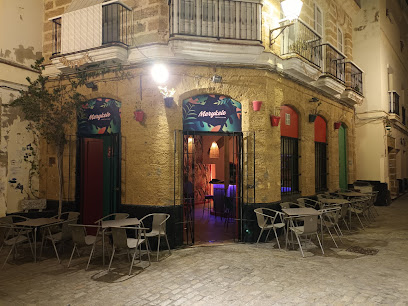
Gorrión Wine Bar
Discover the authentic flavors of Cádiz at Gorrión Wine Bar, where exquisite wines and traditional tapas come together in a cozy atmosphere.
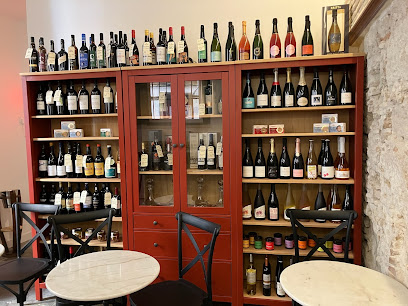
Local Phrases
-
- HelloHola
[oh-lah] - GoodbyeAdiós
[ah-dee-ohs] - YesSí
[see] - NoNo
[noh] - Please/You're welcomePor favor/De nada
[por fah-vor/de nah-dah] - Thank youGracias
[grah-thyahs] - Excuse me/SorryPerdón/Lo siento
[pair-dohn/loh see-ehn-toh] - How are you?¿Cómo estás?
[koh-moh ehs-tahs] - Fine. And you?Bien. ¿Y tú?
[byen. ee too] - Do you speak English?¿Hablas inglés?
[ah-blahs een-glays] - I don't understandNo entiendo
[noh ehn-tyen-doh]
- HelloHola
-
- I'd like to see the menu, pleaseMe gustaría ver la carta, por favor
[meh goos-tah-ree-ah behr lah kahr-tah, por fah-vor] - I don't eat meatNo como carne
[noh koh-moh kahr-neh] - Cheers!¡Salud!
[sah-lood] - I would like to pay, pleaseMe gustaría pagar, por favor
[meh goos-tah-ree-ah pah-gar, por fah-vor]
- I'd like to see the menu, pleaseMe gustaría ver la carta, por favor
-
- Help!¡Ayuda!
[ah-yoo-dah] - Go away!¡Vete!
[veh-teh] - Call the Police!¡Llama a la Policía!
[yah-mah ah lah poh-lee-see-ah] - Call a doctor!¡Llama a un médico!
[yah-mah ah oon meh-dee-koh] - I'm lostEstoy perdido
[ehs-toy pair-dee-doh] - I'm illEstoy enfermo
[ehs-toy ehn-fehr-moh]
- Help!¡Ayuda!
-
- I'd like to buy...Me gustaría comprar...
[meh goos-tah-ree-ah kohm-prahr...] - I'm just lookingSolo estoy mirando
[soh-loh ehs-toy mee-rahn-doh] - How much is it?¿Cuánto cuesta?
[kwan-toh kwehs-tah] - That's too expensiveEs demasiado caro
[ehs deh-mah-syah-doh kahr-oh] - Can you lower the price?¿Puedes bajar el precio?
[pweh-dehs bah-hahr ehl pree-thyo]
- I'd like to buy...Me gustaría comprar...
-
- What time is it?¿Qué hora es?
[keh oh-rah ehs] - It's one o'clockEs la una
[ehs lah oo-nah] - Half past (10)Las diez y media
[lahs dee-ehs ee meh-dyah] - MorningMañana
[mah-nyah-nah] - AfternoonTarde
[tahr-deh] - EveningNoche
[noh-cheh] - YesterdayAyer
[ah-yehr] - TodayHoy
[oy] - TomorrowMañana
[mah-nyah-nah] - 1Uno
[oo-noh] - 2Dos
[dohs] - 3Tres
[trehs] - 4Cuatro
[kwah-troh] - 5Cinco
[theen-koh] - 6Seis
[says] - 7Siete
[syeh-teh] - 8Ocho
[oh-choh] - 9Nueve
[nweh-veh] - 10Diez
[dyehth]
- What time is it?¿Qué hora es?
-
- Where's a/the...?¿Dónde está...?
[dohn-deh ehs-tah] - What's the address?¿Cuál es la dirección?
[kwahl ehs lah dee-rehk-syohn] - Can you show me (on the map)?¿Puedes mostrarme (en el mapa)?
[pweh-dehs mohs-trar-meh (ehn ehl mah-pah)] - When's the next (bus)?¿Cuándo es el próximo (autobús)?
[kwan-doh ehs ehl proh-ksy-moh (ow-toh-boos)] - A ticket (to ....)Un billete (a ....)
[oon bee-yeh-teh (ah)]
- Where's a/the...?¿Dónde está...?
History of El Pópulo
-
El Pópulo is one of the oldest neighborhoods in Cádiz, with its origins tracing back to the Phoenician settlement of Gadir around 1100 BC. This ancient city played a crucial role as a trading post, benefiting from its strategic location on the Atlantic coast. The remnants of this ancient past can still be felt in the narrow streets and historical architecture, which reflect the neighborhood's rich cultural tapestry.
-
During the Roman period, Gadir flourished and was renamed Gades. El Pópulo became a significant urban center, with the construction of important structures such as the Roman theater, which is one of the best-preserved examples in Spain. The archaeological site reveals insights into the daily lives of its inhabitants and the city’s importance in trade and commerce within the Roman Empire.
-
Following the fall of the Roman Empire, El Pópulo underwent significant changes during the medieval period. The neighborhood became fortified, with walls built to protect against invasions. The influence of the Moors is evident in the architecture and layout of the area, with narrow winding streets designed for defense. The neighborhood thrived as a center of Islamic culture and trade until the Reconquista in the late 15th century.
-
The 16th century marked a golden age for Cádiz and El Pópulo, as the city became a key port for the Spanish Empire, facilitating trade with the Americas. This era brought wealth and cultural exchange, leading to the construction of grand palaces and churches in El Pópulo. The neighborhood's architecture from this period reflects the Renaissance style and the burgeoning prosperity of Cádiz.
-
In the 19th and 20th centuries, El Pópulo remained a vibrant cultural center. The neighborhood is known for its annual Carnival, one of the most famous in Spain, which showcases local traditions, music, and theatrical performances. The historical significance of El Pópulo continues to influence contemporary Cádiz, making it a focal point for both residents and tourists seeking to experience the city's rich heritage.
El Pópulo Essentials
-
El Pópulo is located in the heart of Cádiz, easily accessible from other neighborhoods. If arriving by train, the Cádiz railway station is a short 15-minute walk to the neighborhood. Buses from other parts of the city also connect to El Pópulo, with several stops nearby. For those traveling from the airport, taxis are available, and local buses offer services to the city center.
-
El Pópulo is a compact area, best explored on foot. The streets are narrow and often pedestrianized, making walking enjoyable. For longer distances, local buses and taxis are available, though many attractions are within walking distance. Bicycle rentals are also an option, with dedicated bike lanes in some parts of Cádiz.
-
El Pópulo is generally safe for tourists, but standard precautions should be taken. Avoid displaying valuables and be mindful of pickpockets in crowded areas. While there are no specific high-crime areas, it is advisable to stay vigilant, especially when walking alone at night or in less populated streets.
-
In case of an emergency, dial 112 for immediate assistance in Spain. Local police and medical facilities are available in Cádiz. It is advisable to have travel insurance that covers medical emergencies. For minor health issues, pharmacies are scattered throughout the neighborhood, providing over-the-counter medications.
-
Fashion: Do dress appropriately, especially when visiting churches (cover shoulders and knees). Don't wear overly casual or beach attire outside of the beach areas. Religion: Do respect local customs. When visiting churches, maintain a quiet demeanor. Public Transport: Do give up your seat for the elderly. Don't eat or drink in public transport. Greetings: Do greet with a friendly 'Hola' and a smile. Don't forget to acknowledge locals with polite gestures. Eating & Drinking: Do try local tapas and wines. Don't rush your meals; savor the experience.
-
To experience El Pópulo like a local, explore the traditional markets and try local delicacies such as 'pescaíto frito' (fried fish) and 'tortilla de camarones' (shrimp fritters). Engage with locals in the plazas where they often gather for conversation. Visit the ancient Roman Theatre and the Cathedral of Cádiz, both of which are significant cultural sites. Attend local festivals if your visit coincides with them for an authentic experience.
Nearby Cities to El Pópulo
-
Things To Do in Casemates Square
-
Things To Do in Gibraltar
-
Things To Do in Main Street
-
Things To Do in Moorish Castle
-
Things To Do in Queensway Quay Marina
-
Things To Do in Tangier
-
Things To Do in Alameda Botanic Gardens
-
Things To Do in Catalan Bay
-
Things To Do in St. Michael's Cave
-
Things To Do in Gorham's Cave Complex
-
Things To Do in Europa Point
-
Things To Do in Seville
-
Things To Do in Huelva
-
Things To Do in Ronda
-
Things To Do in Asilah








